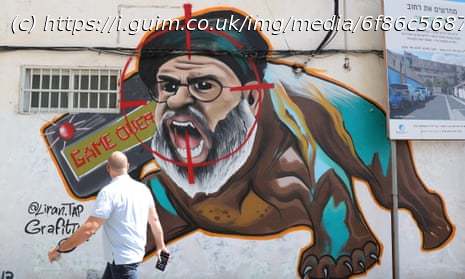Targeting of group’s leaders has failed to win Israel significant strategic advantage in past, let alone deal fatal blow
In 1992, Israeli media celebrated an assassination. The man killed then was Abbas al-Musawi, secretary general of Hezbollah, whose convoy was struck by Israeli helicopters.
Then, as now, Israeli analysts speculated that Musawi’s death might possibly portend the end of Hezbollah, which had been founded 10 years before after Israel’s invasion of Lebanon.
The opposite would turn out to be true. Musawi was succeeded by his 31-year-old protege, Hassan Nasrallah who went on to lead and build Hezbollah for three decades, right until his own assassination by Israel on Friday.
Nasrallah’s killing, in a subterranean Hezbollah headquarters in a southern suburb of Beirut, has inevitably focused attention on two questions: whether Israel’s long-term policy of assassinations is effective, and what the killing of Nasrallah and other senior Hezbollah commanders means for the group.
The issue of the efficacy of assassinations it is a moot point, even within the Israeli security and political establishment which have long debated the issue, including some current ministers who reportedly opposed Nasrallah’s killing.
Israel has also killed senior members of Hamas in the past, including key founders Sheikh Ahmed Yassin and Abdel Aziz al-Rantisi, both in 2004, neither of which delivered it any long term strategic advantage when it came to Gaza.
The reality is that it may take months to see what, if any, significant impact the campaign of assassinations of Hezbollah leaders will have dealt the group, not least because of Nasrallah’s decades-long efforts to embed it in Lebanese-Shia society as a social provider as well as an armed force.
While experts consider Hezbollah to have been significantly harmed by recent events, many are uncertain whether it is a fatal blow or indeed whether the advantage to Israel may turn out to have been overstated, on the ground and in terms of diplomatic fallout.
Sanam Vakil, the head of Chatham House’s Middle East and North Africa Programme, unpacked some of these contradictions.
“Hezbollah is militarily and operationally degraded,” Vakil wrote on X, “and knows that any escalation will lead to a conflict they cannot win.






